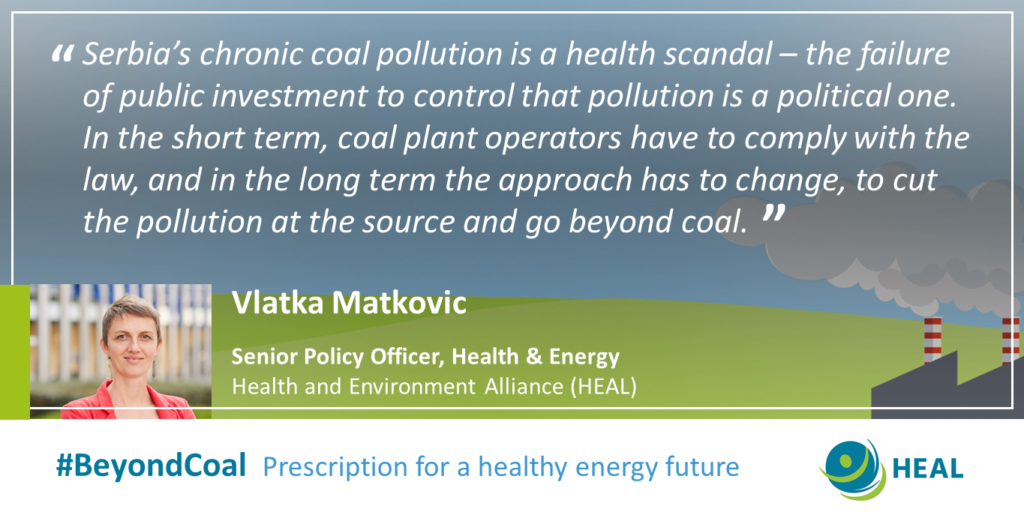Chronic Coal Pollution Serbia – Making the case for health promoting investments for zero pollution in Serbia
Coal combustion is the dominant form of energy generation in Serbia and the Western Balkans, with severe health consequences – the 16 outdated coal power plants in the region produce as much pollution as the 250 coal power plants of the entire European Union.
- Public investments in pollution control for 2 plants in Serbia amount to 47 million EUR (42 million EUR by the EU, 5 million EUR by Serbia) since 2009.
- Starting in 2018, a new pollution control directive entered into force, but emissions from coal plants are still too high, leading to continued ill-health in Serbia and the wider European Region.
- HEAL’s analysis of emissions data points to emission control technology not being used.
- Emissions of Kostolac and Nikola Tesla for sulphur dioxide (SO2) have gone up in the last decade, while emissions of particulate matter (PM) have fallen by half. Even with PM pollution going down those two plants enormous amounts of SO2 and PM pollutants are being released into the air, 35 and 14 times than the emissions of the average EU plant.
- The pollution coming from Nikola Tesla and Kostolac power plants causes 1,940 premature deaths in the EU, the Western Balkans and beyond, 4,000 cases of bronchitis in children, 1,000 cases of bronchitis in adults, 1,500 hospital admissions of patients due to respiratory or cardiovascular symptoms and annual health costs of up to 4.4 billion EUR.
- Ultimately and ironically, citizens are paying twice – taxpayers’ money is being used to subsidise polluters through the installation of filter technology, then they have to pay for it with their health and for their healthcare when the pollution cutting technology is not used.
Full report here




